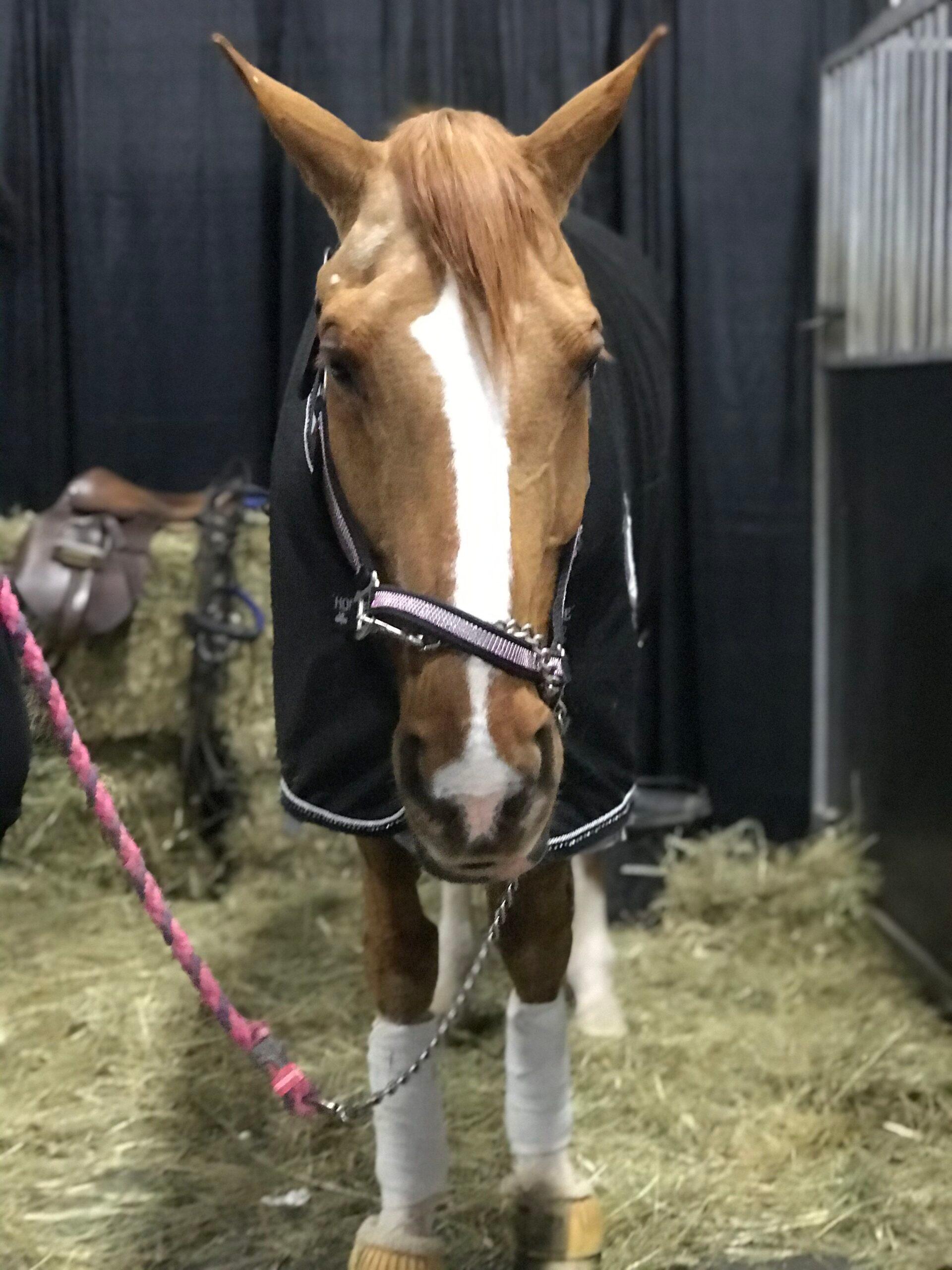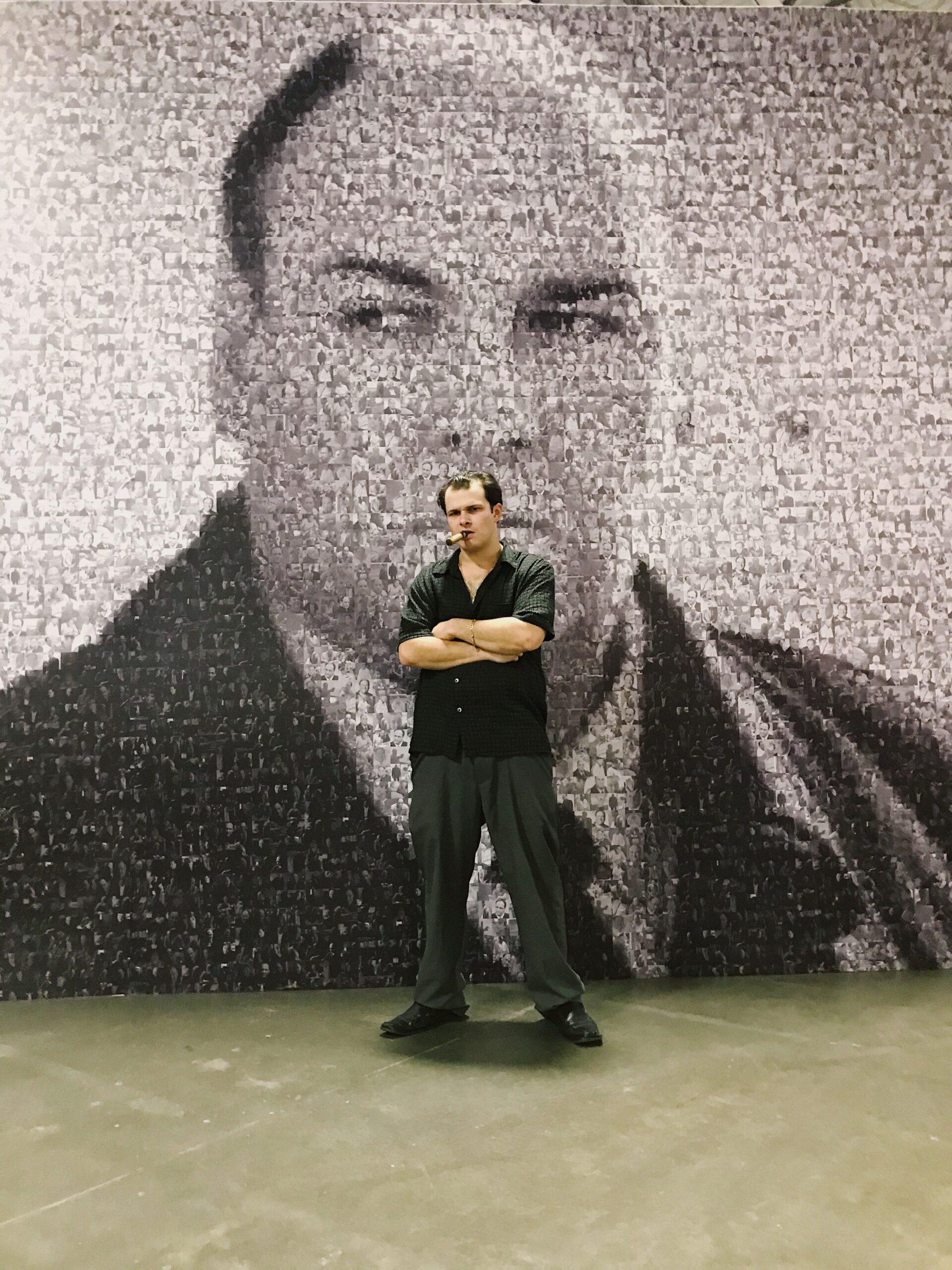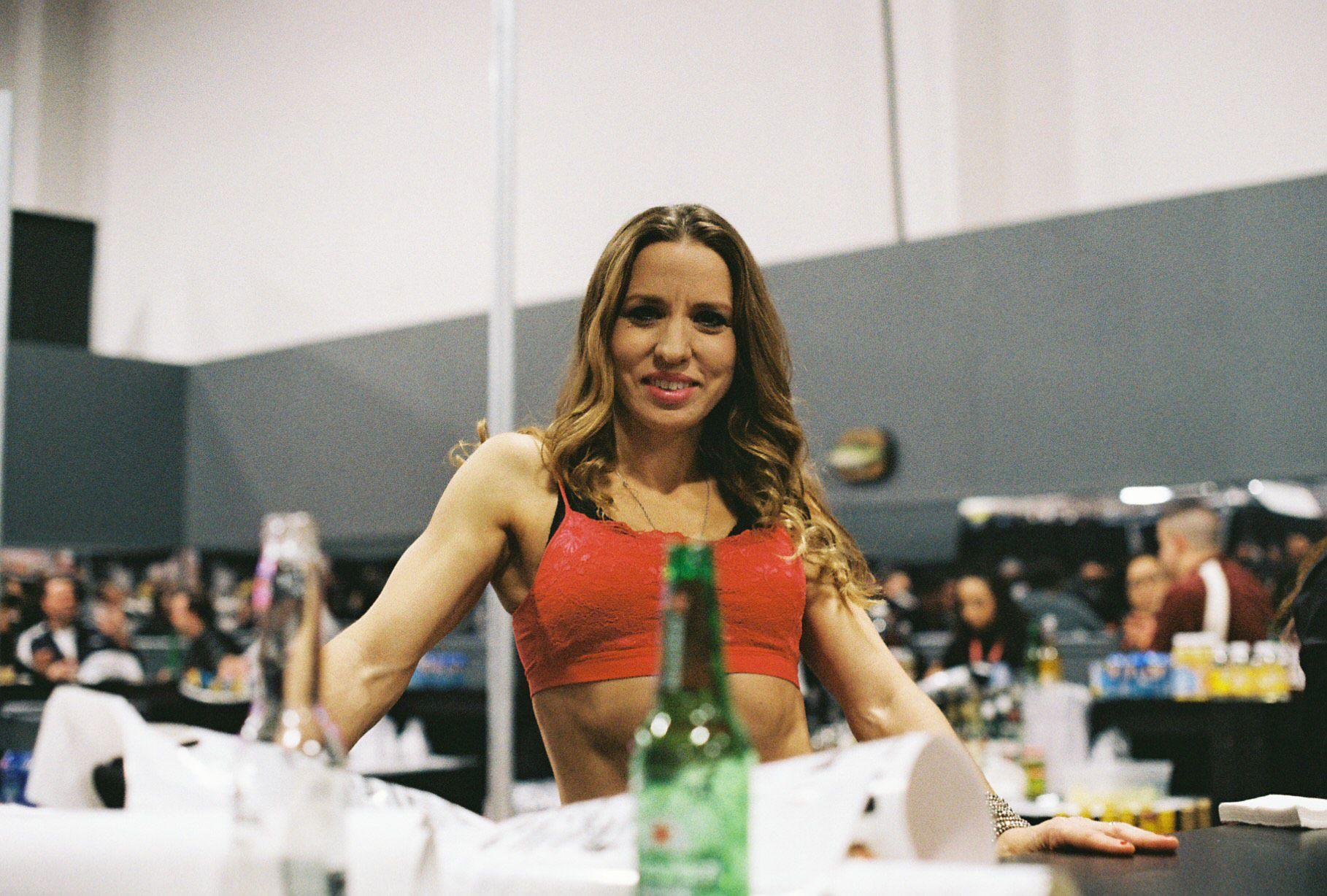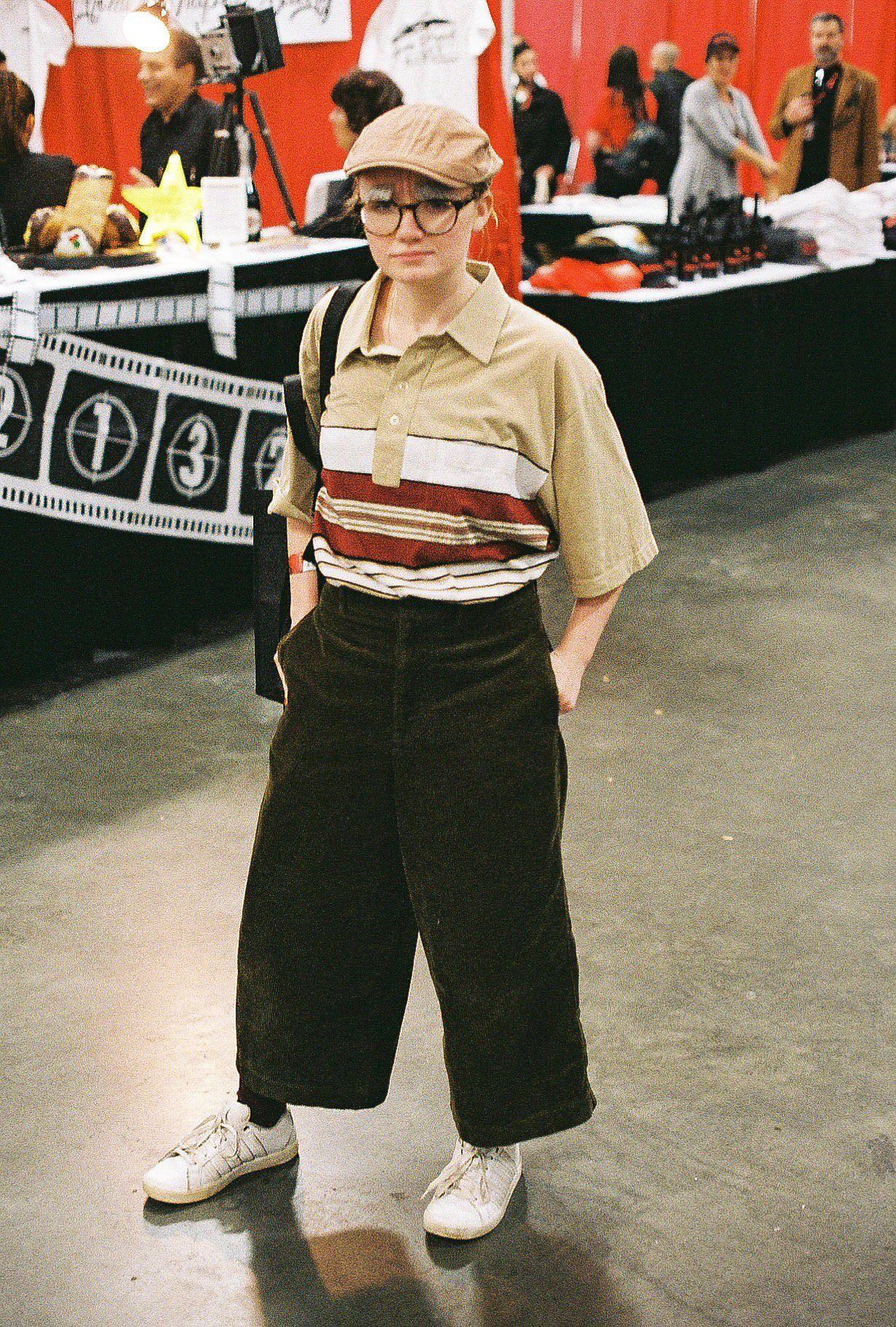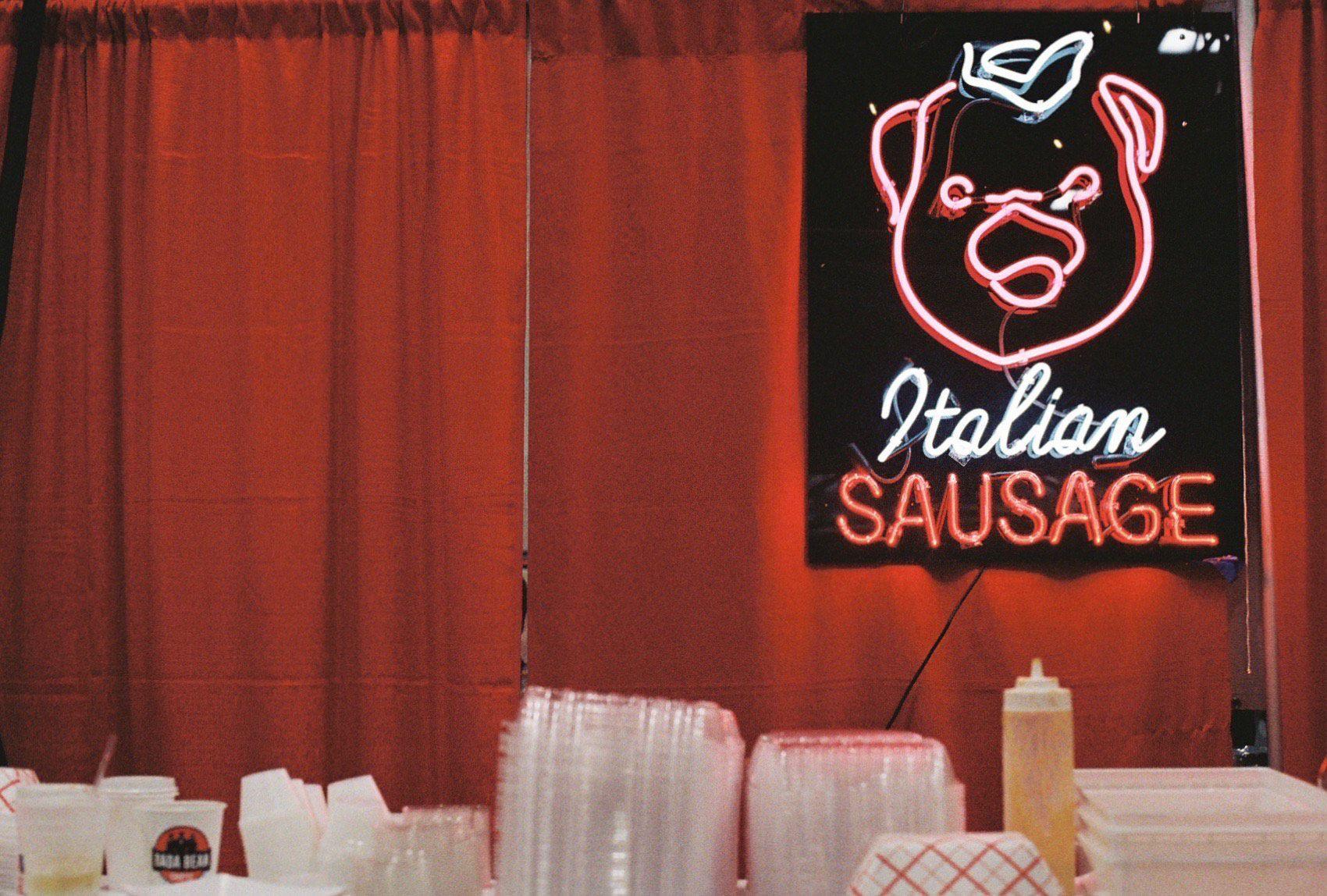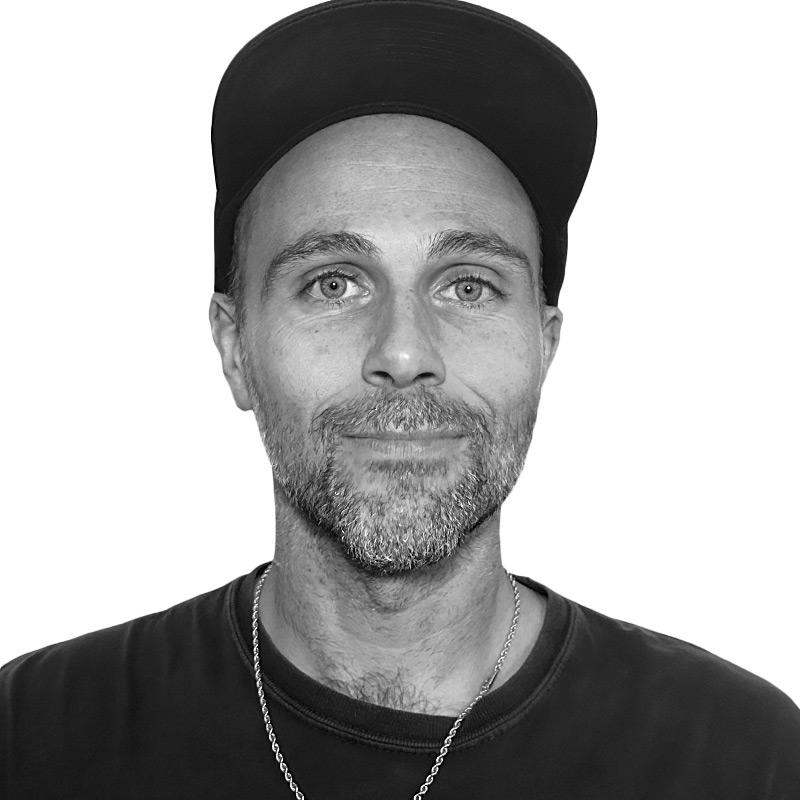Dominic Chianese looks mostly the same as you remember him, but his presence cuts a bit differently these days. Gone are the Coke-bottle glasses he became famous for as Uncle Junior on the legendary HBO mob drama The Sopranos. Replacing them are a pair of hearing aids turned up to max volume. You have to speak directly into his ear, and if you want to hear his heartfelt thoughts on scriptwriting and acting, you have to lean in close when he responds. But when the 88-year-old actor and singer took the stage at the Meadowlands Exposition Center for a set of Italian standards, there was no hint of fragility—Chianese transformed into a ball of passion and charisma, commanding respect worthy of a don.
Chianese was singing as part of an after-hours VIP event at the inaugural SopranosCon, a two-day celebration of the show’s legacy held in Secaucus, New Jersey, in late November. The festival attracted a venerable who’s who of the show’s cast—from marquee names like Vincent Pastore (Salvatore “Big Pussy” Bonpensiero) and Drea de Matteo (Adriana La Cerva) to minor yet still iconic characters like Members Only Guy (no, he can’t answer that question) and Tony’s beloved horse, Pie-O-My. At times, it seemed like the organizers had tracked down everyone except for the Russian. In this room, they’re all megawatt stars, and on Saturday night, none shone brighter than Chianese, who ran through tender renditions of “That’s Amore” and “Speak Softly Love” and told a joke that fittingly opened with, “A guy walks into a psychiatrist’s office.”
“I’m being very sincere when I say that it made me feel very, very good,” Chianese said in between songs.
The man who played Corrado Soprano Jr. may have been speaking of the absence of bread-throwing during his set. Most likely, he was referring to the thousands of fanatics who packed into a North Jersey office park to re-live one of the most influential shows in TV history with all the strange, wonderful ephemera that accompanies it. This is a place where it’s always the early 2000s, where Tony Soprano’s Escalade becomes a site of worship and people wait in line for hours to get a glimpse of a near-perfect replica of Dr. Melfi’s office or a less-than-perfect replica of the Bada Bing; where an artist tattoos Adriana flash art and fans dress as Artie Bucco, Bobby Baccala, and Furio (ponytail and all). It’s like any other fan convention you’ve seen, except there are fewer panels and more cannoli-eating contests. (One entrant claimed it had been rigged.) SopranosCon drew the ire of some attendees for the long lines and confusing (and perhaps misleading) pricing structure. But no one complained about the sprawling Pine Barrens maze built for the event.
All of this is to say that the legacy of The Sopranos is alive and well in Secaucus, where the likes of Mikey Palmice and Charmaine Bucco walk around as kings and queens, Alabama 3 plays three-song sets featuring two versions of “Woke Up This Morning,” and Karen Baccala’s ziti remains frozen in time. And as creator David Chase preps a movie prequel based on the series for next year, SopranosCon could be just the beginning of the next wave of nostalgia for Tony and his crew. But with the unassailable classic’s debut 20 years in the rearview, is it finding a new audience or just singing the hits for the family? And more to the point, as the actor who played Hesh Rabkin, Jerry Adler, asked on stage during a Sunday Q&A: “What are we doing here?”
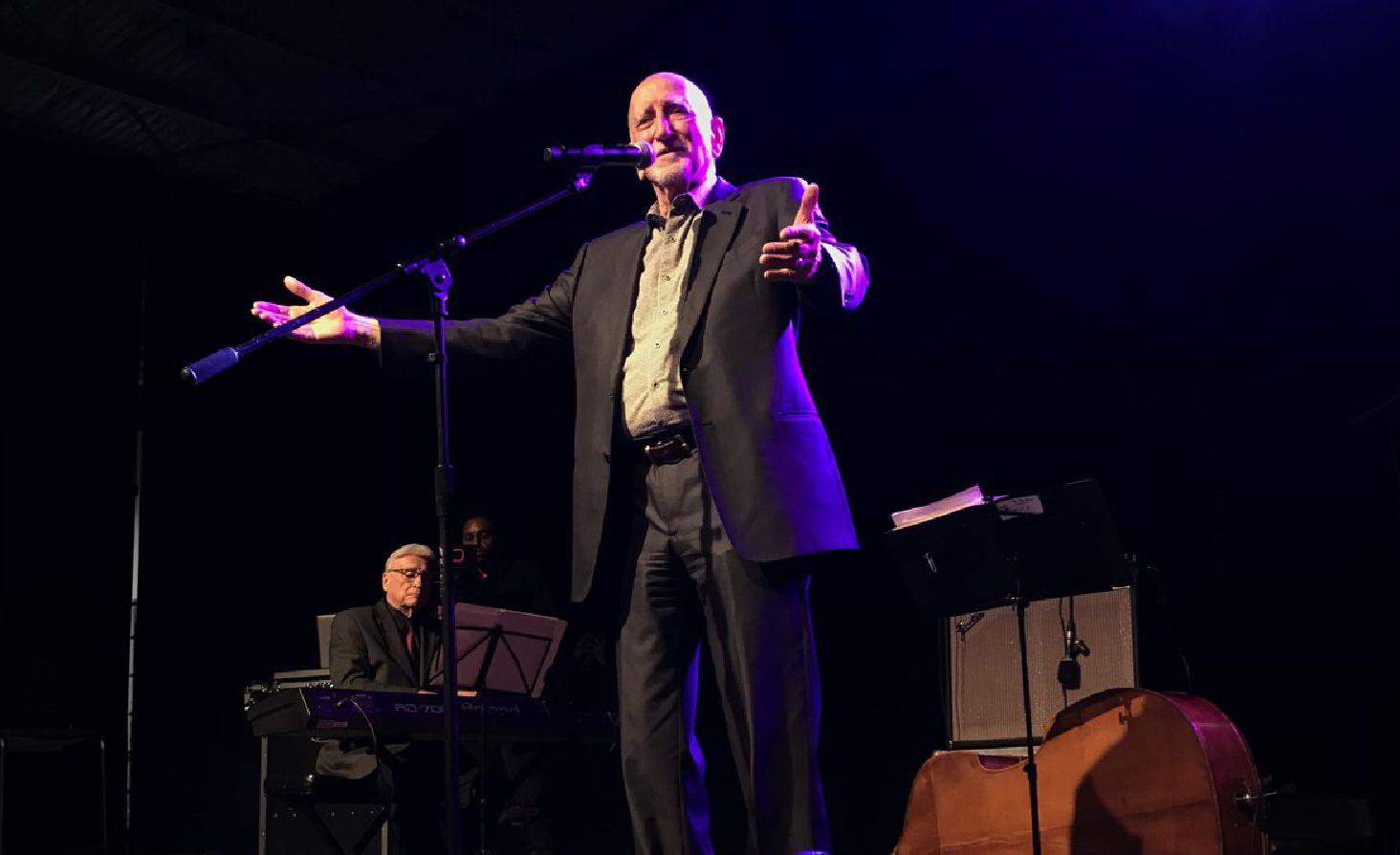
There are a variety of answers to Adler’s question, both big and small. On the macro level, SopranosCon’s existence needs little explanation—people came from as far away as England, Australia, and Hoboken to pay respect to a pantheon TV series and the all-time performance of the ensemble cast, which was led by James Gandolfini, who died in 2013. In a vacuum, however, everyone was at SopranosCon for different reasons. There were fans who waited for as long as an hour to recite lines back to cast members like Matt Servitto, better known as FBI Agent Dwight Harris. “They’re quoting it like it’s Scripture,” he said. There’s Ron Bernard, the proprietor of the deep-dive site Sopranos Autopsy, who flew in from Miami to be here. He identifies most with Christopher Moltisanti, Tony’s protégé, who spent the entire series searching for himself. And there’s Nicky Petito, a 24-year-old comedian and actor whose career started gaining steam after Michael Rapaport reposted one of his spot-on Tony impersonations. He came from just a few miles away, but he’s witnessing a side of his home state he rarely sees: “The jumpsuits are back, the big fur coats, the big hair, the big earrings—the way I love girls to dress—they’re all here.”
The three creators of SopranosCon have their stories, too. Joe Fama has made a side hustle out of drawing some of the show’s most famous scenes for Sopranos Sketches. Earlier this year, he reached out to Danny Trader, the brain behind meme account Time Immemorial, with an idea for an event to mark the 20th anniversary of the show’s debut. At first, Trader thought the two men—who had never met before—would plan a dinner or some other kind of intimate gathering. Fama, however, had bigger ideas: an entire convention, complete with faithful set re-creations and other artifacts from the show. Trader saw the seeds of something big, so he reached out to someone he had never met, Michael Mota, a Providence, Rhode Island, native who had hosted events with members of the cast. First, they got Federico Castelluccio (Furio Giunta), who reached out to fellow alumni David Proval (Richie Aprile) and Pastore, and things snowballed. Before long, Pie-O-My’s handler and original Bada Bing dancers reached out, and Sopranos stars like De Matteo and Chianese committed—even though the convention hadn’t yet been confirmed. The three strangers found themselves this spring advertising an event that had no date or venue yet. “We definitely jumped out of an airplane, trying to buy a parachute on the way down,” Trader said.
The parachute came in the form of an untapped fan base excited to visit Tony’s stomping grounds. Single-day tickets for the event started at $50, with weekend packages costing as much as $2,500. (In case you were wondering, the popular “Stugots II” package ran as much as $750 for two people and included VIP meet-and-greets and a trip to Satin Dolls, the real-life Bada Bing.) The first day nearly sold out, and organizers estimated that between 7,500 and 10,000 people traveled through the expo center’s doors (which were made over to look like the New Jersey Turnpike) during the two days. Some waited in line for hours to get an autograph and picture with Tony Sirico (Paulie Walnuts) or Vincent Curatola (John Sacramoni) or try a sausage sandwich from a Satriale’s food stand. “When I walked around, I felt like a rock star,” Servitto said.
The show’s enduring popularity itself isn’t shocking—The Sopranos put HBO’s original content on the map, and countless books have been written about how it revolutionized TV. (At the height of its popularity, the series also inspired cookbooks and our brief national Big Mouth Billy Bass nightmare, but the less said about consumerism in 2002, the better.) Still, this is all a bit odd to see in 2019, 12 years after the finale left millions of viewers wondering whether their cable had gone out. The cosplay, the murals, the fan art, and the piles of 8-by-10 glossies feel more like the territory of a recent fantasy hit like Game of Thrones or a sci-fi classic like Star Trek, not a mob show filled with critiques of suburban life and realistic depictions of depression and addiction. But that vivid world—and the era in which it debuted—is exactly why something like the convention can exist, says Rolling Stone’s chief TV critic, Alan Sepinwall, who covered The Sopranos for Tony’s hometown Star-Ledger during its initial run and recently coauthored The Sopranos Sessions with Matthew Zoller Seitz.
“Sopranos came up at a time when viewing was a little bit more concentrated,” he says. “That helped it both break through and also stay in memory. If you’re old enough that you watched The Sopranos when it was in its first run, it’s a huge deal, and it remains so.”
But not everyone watched in its first run, particularly a younger generation that may have missed the show despite coming of age in a TV landscape that The Sopranos helped birth. And whether it’s latching on with them may be something of a mixed bag.
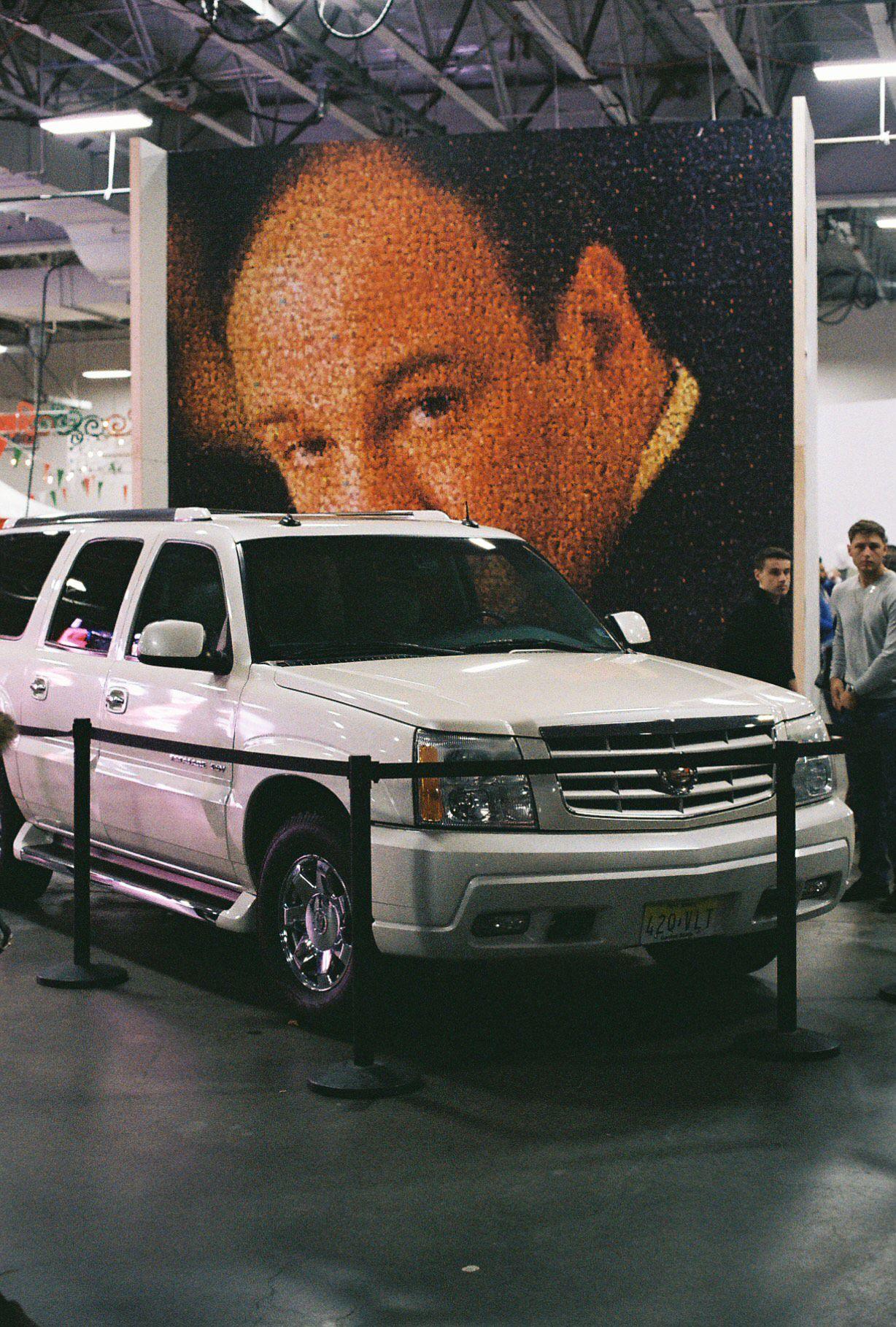
Tony Soprano’s Cadillac Escalade, used on the show beginning in Season 5
Andrew Reiter seemed out of place at SopranosCon. For starters, he wore a sweater, not a Sunday’s-best tracksuit. He’s also never seen Goodfellas or any of the Godfather trilogy. But most crucially, he was a 24-year-old in an expo center that appeared to be brimming with people between the ages of 30 and 60. Irregardless, the aspiring writer made the trip down from Ithaca to Secaucus with his friend Ryan in part because they’ve grown to love the show, but also because they felt like SopranosCon would be a once-in-a-lifetime experience. “We thought it would be really, really weird and funny,” he said. “It’s bizarre, in a way, that it’s happening.”
Growing up, Reiter wasn’t allowed to watch the show—he would’ve been 4 when the first season aired, after all—and like many of his peers, he jumped right past The Sopranos and into other prestige TV fare like Mad Men and Breaking Bad. The Sopranos was a glorified mob drama, he thought, and it would be “probably too macho and not really up my alley.” But when he finally gave in and watched the show, he fell in love with the family dynamics and the way the show handled toxic masculinity.
That tracks for Sepinwall, who says that as recently as a few years ago, he had difficulty finding young people who had watched The Sopranos. During college speaking engagements, he’d ask how many of the students had seen the show, and invariably, only one or two hands would go up. That was partly because of the adult themes, but Sepinwall suspects there was a bigger culprit: a shift to streaming. Before HBO developed its own platforms, Go and Now, the premium network struck a deal in 2014 with Amazon Prime to host its original content. It likely limited the impact of some of its earlier shows in a way that partnering with Netflix or Hulu wouldn’t have. “At that point, I could tell clearly it’s because it’s not on Netflix and that to a certain generation, at least in that moment in time, Netflix is TV and TV is Netflix,” he said.
So why did the likes of Andrew and Ryan finally give in and watch, even if their peers haven’t en masse? Shared passwords for HBO Now probably helped, though its competitors’ reach still dwarfs the stand-alone service’s. Perhaps it’s something as simple as the show getting a second life on the internet as we know it.
The jumpsuits are back, the big fur coats, the big hair, the big earrings—the way I love girls to dress—they’re all here.Tony Soprano impersonator Nicky Petito
The technology of the Sopranos world looks relatively quaint in 2019—think Christopher waiting outside in the rain for Tony to call on a payphone or the boys trying to watch Godfather II on DVD (note the extended shot of the FBI warning in that clip, if you’re into subtlety). That obsolescence also applies to the means used to discuss the show during its run. Episode recaps by the likes of Sepinwall and Zoller Seitz were accessible online, as were spirited discussions on niche forums like Television Without Pity and the Sopranos-specific Chase Lounge. But the web coverage of hit shows in the early 2000s didn’t reach nearly the same fever pitch it does now. The first influential show of the 21st century existed very much in a 20th-century world: before smartphones, podcasts, and Instagram, before a time when memes dominated the internet. Today, we can dunk on the Game of Thrones finale or get our Baby Yoda riffs off, but, well, look at how joyless Twitter was after the Sopranos finale.
Both Andrew and Ryan said memes were a driving factor in their desire to join the club. Perhaps they stumbled across one of Nick Usen’s. The 26-year-old Sopranos superfan has been into the show since he was a teen, but in the past few years, he’s developed a bit of a cult following for his excellent Sopranos memes. (His Tony–as–Doctor Manhattan is an all-timer.) The show resonated with Usen and his friends in a way others have not—he thinks of his group chat like hanging in the back of Satriale’s—and the tweets around The Sopranos have proliferated in a way they never have for, say, Breaking Bad. Usen says Tony’s world is more real and relatable, from Christopher searching for his arc, to the gig-economy nature of mob work, to the much-derided A.J. character, who surfs the internet in his underwear as his dad looks on in confusion and disgust. (“The ultimate failson,” Usen said.) “Even Tony Soprano just hammering Prozac—every millennial weirdly sees themselves in a mob boss from New Jersey in that moment,” he said.
It makes sense, given the national mood, that expressive shows like The Sopranos and Mad Men would be reappropriated like this, says Emily VanDerWerff, a Vox critic who recapped The Sopranos in loving detail for The AV Club roughly a half-decade after it cut to black. David Chase’s masterwork, with its rich acting and strong writing, will continue to connect with viewers in a way shows today may not. “People often use memes and GIFs to express these complicated emotions that they need the actual human face to use,” she said. “There’s just something about the quality of acting in those shows that lends itself to memery.”
But even if The Sopranos resonates with a group of extremely online young people, there’s still a barrier to entry for others. The plot is dense, at times aimless, and often morally ambiguous. That last part feeds into the idea that the show promoted violence against women, which was hard to ignore even at a celebratory event like SopranosCon. On the Saturday-night VIP trip to Satin Dolls, the real-life Bada Bing, fans gawked and snapped pics at a guardrail outside the club—the site of one of the show’s most harrowing scenes, when Ralphie killed Tracee, a dancer who had just told him she was pregnant with his child. Diana Lynn, who has worked at Satin Dolls for 20 years and appeared in several Sopranos episodes, said that 2001 scene inspired years of site-seeing. “People would do that all the time,” Diana said. “They’d just be driving up 17, and they’d stop and take a picture of the guardrail—group photos, singles, selfies.”
Rewatching the scenes in 2019 can leave viewers feeling queasy. In the years since that Season 3 episode, “University,” the state of TV has changed, with a shift toward series like Stranger Things or The Crown that are pulpy and easy to digest, two things the 86-episode Sopranos is not. (Well, maybe some pulp.) The issue is similar to the discourse around Martin Scorsese’s The Irishman, a slow burn that explores choice and mortality through the prism of organized crime but has alienated a subset of potential viewers with its three-and-a-half-hour running time and moral ambiguity.
The show also debuted at a time when stories about white men behaving badly were considered the height of artistry (see: Best Picture winner American Beauty). And while, as VanDerWerff pointed out, The Sopranos never hid who its protagonists were, that may make it harder for a generation more aware of issues like representation and sexism to dive into. “I don’t think it has the immediate reach to someone from Gen Z that something like Euphoria does,” VanDerWerff said. “But it’s always going to be there waiting for them.”
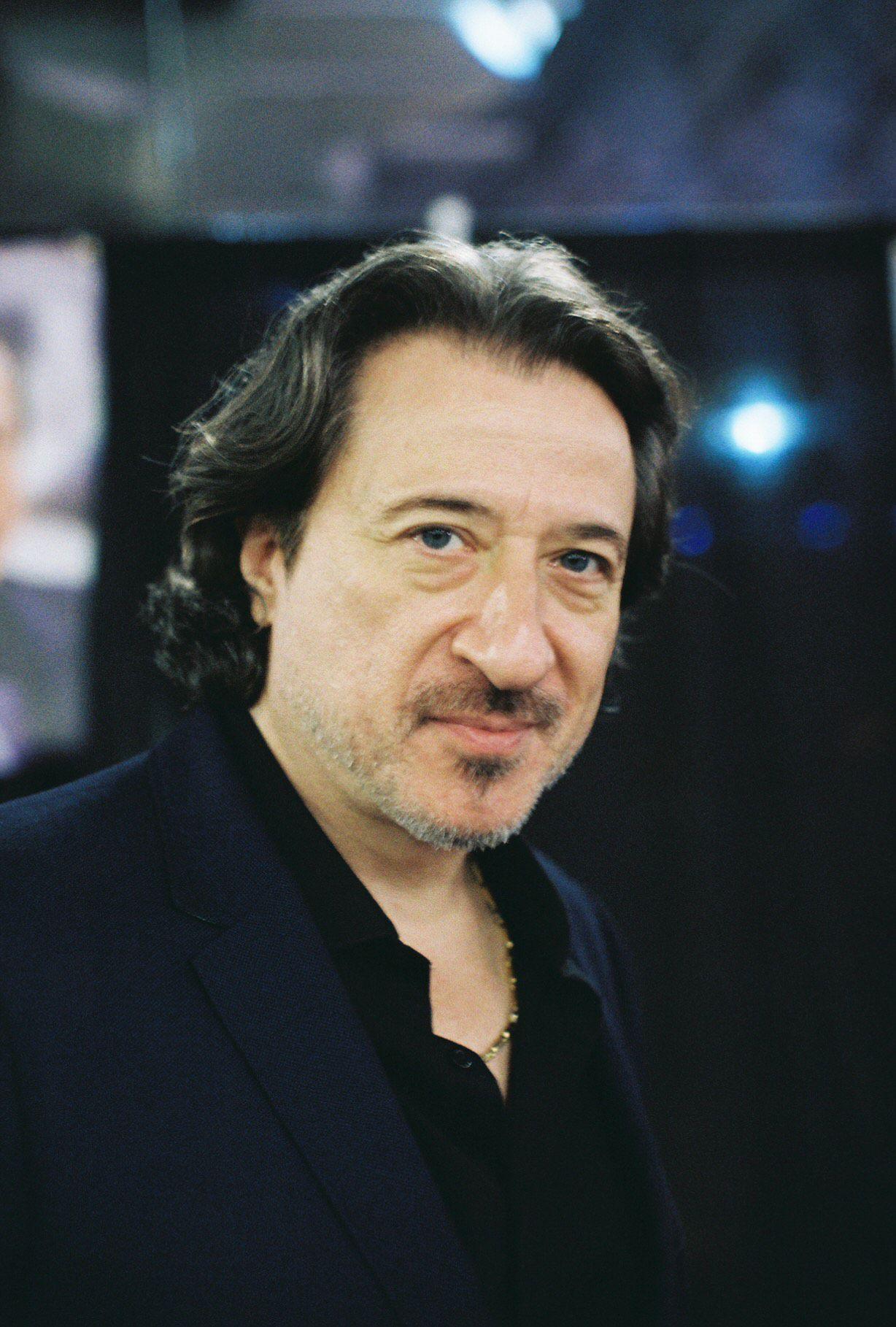
Federico Castelluccio, who played Furio Giunta on The Sopranos, poses at the exposition center
Vik Singh had been conducting business out of Satriale’s all day. Sort of.
The host of the Poda Bing podcast, which he created to “go a mile wide and a mile deep” on the series, was in front of a mural at SopranosCon that mimicked a wall inside the fictional pork store, sitting at a table covered by a red-and-white checkered cloth. If you’ve seen the Season 1 episode “The Legend of Tennessee Moltisanti”—the one where Christopher gets a little revenge for Spider getting shot in the foot in Goodfellas—you’ll recognize it.
“Eyes wide open, man,” Singh said as he looked out at the convention-goers, many of whom that day had complimented his work. Since quitting his job as a lawyer and launching his podcast network, Alternate Thursdays, two years ago, he’s become somewhat of a made man in this world. Poda Bing, his network’s flagship show, has caught on thanks to its perfect name, interviews with more than 70 people connected to the show, and Singh’s undying passion for the series. The Los Angeles native first connected with The Sopranos while studying in the Northeast in the early 2000s. Poda Bing is popular in England and Australia, and considering it’s a retrospective on an American show that hasn’t been around for over a decade, it’s ranked shockingly high on the podcast charts in places like Finland and Slovenia. “I’m literally making the podcast that I would want to listen to myself,” Singh said. “Had this version of that existed already, I probably wouldn’t have done it.”
Even Tony Soprano just hammering Prozac—every millennial weirdly sees themselves in a mob boss from New Jersey in that moment.Sopranos meme-maker Nick Usen
Singh’s podcast—a complementary piece that, like Sopranos memes, couldn’t have existed during the show’s heyday—is doing its work to keep The Sopranos in the public consciousness. Next year, it may not have to do as much. In September 2020, David Chase and director Alan Taylor, who shot nine Sopranos episodes including classics like “Kennedy and Heidi” and “The Blue Comet,” will release The Many Saints of Newark, the first entrant into the expanded Sopranos universe. Not much is known about the movie—Chase won’t even talk about it with Sepinwall, who’s interviewed the showrunner many times in the past 20 years—except that it’s a prequel set around the 1967 Newark race riots featuring a younger Uncle Junior, Johnny Boy Soprano, and Dickie Moltisanti—and a young Tony. That last bit has gotten most of the headlines: Michael Gandolfini, the son of James, will step into his late father’s iconic role. He looks just like him.
The decision to dip back into the crowd-pleasing world of North Jersey is somewhat surprising for Chase, who has been accused many times of having contempt for his audience. But old TV shows have been finding success as films. The Downton Abbey movie grossed $31 million in its opening weekend in September and has topped out at around $96 million. El Camino: A Breaking Bad Story had only a limited theatrical run, but it appears to have been successful on Netflix. Chase’s last foray into film wasn’t a hit, but this time will likely be different.
“The show has a big enough audience that even if it’s only marketed to Sopranos fans, it’s going to do well,” Sepinwall says. “You saw what the Downton Abbey movie did at the box office when it came out. But I also think Chase is smart enough to make a movie that’s going to try to function as a movie whether or not you know all of the little backstory about Dickie dying while he was bringing the TV tray to Christopher.”
Still, with the debates over whether young people are latching on to the show and the changing habits of moviegoers, Singh has his doubts about Many Saints’ widespread appeal. He’ll be there opening night and he expects something worthy of the show’s legacy, not a cheap cash grab. The movie won’t have James Gandolfini or Edie Falco to draw people in—reportedly, none of the original cast will appear in the film—and Singh suspects that it may not play well outside of places like New York and Los Angeles, where going to the movies is still a ritual. But Many Saints should do well among Sopranos diehards, the same way the Creed movies built much of their success by appealing to Rocky acolytes. “They’re pretty cultish movies, though, right?”
It’s 2 p.m. on Saturday, and Pie-O-My is tired. The horse (real name: Goldee) was the star of an event at the Meadowlands Racetrack on Friday night, and according to handler Kimberly Martin, she was prancing as though she knew it. But now Goldee is in the expo center, and the 22-year-old thoroughbred needs a break from the fans who want a selfie with Tony’s favorite animal at this exact moment. “She’ll be back out in an hour,” Martin repeatedly says as people try to sneak pics of Goldee or jam their hands into the makeshift stall she shares with her friend, a pony.
Martin says it’s been great connecting Goldee with the show’s fans, but it’s been a long day, and there’s another one coming tomorrow. Luckily, Goldee’s in the back of the hall and can get some air. That’s not the case for other SopranosCon stars like 77-year-old Tony Sirico, who tapped out after a few hours on Saturday and got caught in a crowd while trying to leave on a golf cart, or 90-year-old Jerry Adler, who broke his hip recently and is using a walker to get around. Still, Adler is amazed when he looks out at the thousands of people in attendance. “All of this for us?” he asks, as surprised as he is happy.
Matt Servitto isn’t as shocked right now, if only because he’s been constantly surprised by the show’s reach over the past 20 years. He’s one of the lucky ones—some cast members haven’t done much since 2007, but Servitto has gone on to parts in Billions, Homeland, and NCIS: New Orleans. But his Agent Harris role remains his most recognizable.
“You always think, ‘Is that show any good, really? Is it going to hold up? Twenty years from now, is anyone watching this shit?’” he says. “Not everything I’ve done is going to hold up like this, but this is going to.”
The question now is how long the Sopranos nostalgia itself can hold up. The convention’s creators are planning to host MobMovieCon in Atlantic City in April 2020—as of now, virtually all confirmed attendees are Sopranos stars—and several cast members mentioned throughout the weekend that there’s been talk of bringing a version of the event to places like Chicago or Miami. Tony Soprano once said that “remember when” is the lowest form of conversation, but on a wet late November weekend in New Jersey, it appears that conversation is just getting started.
For now, fans are all too happy to have that discussion, at least in New Jersey. And at the center of it during SopranosCon was Chianese, whose performances attracted enormous crowds and made even the toughest guys emotional. (“It brought a tear to my eye,” says Nicky Petito, the Tony impersonator.) Here, Chianese is a god, the patriarch of this weird, occasionally wonderful event paying tribute to a show and world that both no longer exist. Offstage, he speaks of David Chase’s brilliance, the character-driven plots, and the open-ended nature of the show. That’s what’s kept the fans coming back to it, he says, but it’s also why he feels such a fondness for his work as Uncle Junior. It’s why he agreed to perform two sets throughout the weekend, and it’s why he came to life when singing on stage for the Sopranos faithful.
“The human heart has many passions—many ways to connect people,” he says. “The people have to connect in a very meaningful, truthful way so that the audience will wonder what’s going to happen next. And that is life itself—what is going to happen next? We don’t know. You tell a story, and you hope that it’s going to have a happy ending.”
Disclosure: HBO is an initial investor in The Ringer.
